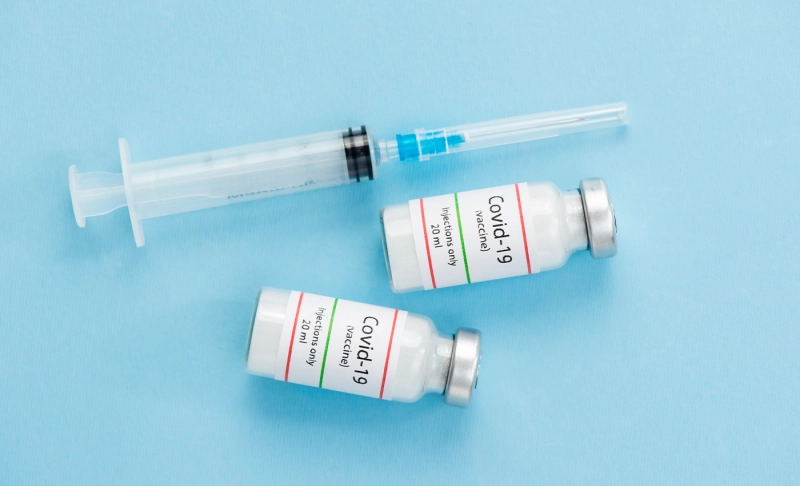By: Sunil Kumar
January 9 2021
False: Pork extract is used to develop the COVID-19 vaccine.

The Verdict False
Major COVID-19 vaccine manufacturers have published their ingredients in vaccine production, and none of them mention the use of pig fat in them.
Major COVID-19 vaccine manufacturers have published their ingredients in vaccine production, and none of them mention the use of pig fat in them.Indonesian Muslim clerics had sparked the talk on whether or not the COVID-19 vaccine was permissible to be used under Islamic law. As corporations race to develop a COVID-19 vaccine and countries scramble to secure doses, the utilization of pork products has raised concerns among Muslims. The ingredients within the vaccine candidates approved or within the method of being approved worldwide -Pfizer, Moderna, and AstraZeneca, and the Covaxin revealed that pork fat isn't a part of their COVID-19 vaccines. Spokespeople for Pfizer, AstraZeneca, and Moderna, have said that pork products are not part of their COVID-19 vaccines. The inadequate supply and preexisting deals worth millions of dollars with other companies suggest that some countries with high Muslim populations, such as Indonesia, will receive vaccines that have not yet been certified to be gelatin-free. The Indonesian government has said it will involve the Muslim clerical body in the COVID-19 vaccine procurement and certification process. However, the critical vaccines that are approved so far do not contain pig extract or fat. The COVID-19 pandemic has given rise to a lot of potentially dangerous misinformation. For reliable advice on COVID-19 including symptoms, prevention and available treatment, please refer to the World Health Organisation or your national healthcare authority.


